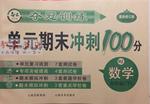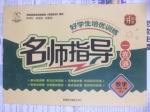题目内容
Battle of the Books
Each year in April, the “Battle of the Books” teams from each school meet for the Semi-Battle competition. The top three teams from each division go on to the Final Battle to compete for gold, silver and bronze medals. The gold medal winners go on to compete in the Regional Championship.
Battle of the Books Rules and Goals
Goals:
Students: Have fun reading good books from a wide variety of authors and genres(体裁).
Educators: Encourage reading, foster friendly competition, and nurture the love of books in young people.
Rules:
One team of six students from grades 7 or 8 will represent each school.
1. Each team will have a spokesperson. While the team is encouraged to discuss possible answers, team answers will only be accepted from the spokesperson.
2. The Semi-Finals will consist of three rounds of play, and the Finals will have one round. Each round features a Regular Battle and a Lightning Battle.
3. Regular Battle questions will be addressed to teams alternately(轮流地), regardless of the last correct answer. There will be 12 Regular Battle questions per round. When asked a question, teams will have 20 seconds to provide the book’s title and author.
4. Five points will be given if the team correctly identifies the exact title, and three points will be awarded for correctly identifying the author’s surname. The author’s first name does not need to be identified.
5. The Lightning Battles will be featured at the end of each round. Lightning Battles consist of a 2 minutes, 30 seconds time period during which each team is asked up to 12 questions. These questions concern details of the books and will not require teams to identify titles or authors. Each correctly answered Lightning Battle question will be worth three points.
PLEASE NOTE:
A warm-up practice question will be given to each team at the beginning of its first Semi-Battle and at the beginning of the Final and Regional Final Battles.
There may be no assistance from the coordinators and audience members.
Teams will not be punished for incorrect answers.
Any team demonstrating poor sportsmanship will not be invited back.
【小题1】According to the text, “Battle of the Books” is an activity ______.
| A.where students are inspired to write books |
| B.where books are used as arms in the battle |
| C.where friends compete with each other |
| D.where readers are motivated to love books |
| A.72 | B.24 | C.36 | D.12 |
| A.Teams are given 20 minutes to answer a question. |
| B.A competitor gets 18 points for 6 correct titles. |
| C.Each round ends with the Lightning Battles. |
| D.A correct first name will be given 5 points. |
| A.won’t be given a warm-up practice | B.won’t get help from audience members |
| C.will be reduced in its points | D.won’t be allowed to compete next time |
【小题1】D
【小题2】A
【小题3】C
【小题4】D
解析试题分析:本文主要介绍了“Battle of the Books”竞赛的目的、比赛形式及比赛规则。
【小题1】根据Goals: Students: Have fun reading good books from a wide variety of authors and genres(体裁).Educators: Encourage reading, foster friendly competition, and nurture the love of books in young people. 故选D。
【小题2】根据The top three teams from each division go on to the Final Battle to compete for gold, silver and bronze medals. The gold medal winners go on to compete in the Regional Championship. The Semi-Finals will consist of three rounds of play以及Regular Battle questions will be addressed to teams alternately(轮流地), regardless of the last correct answer. There will be 12 Regular Battle questions per round.可知3乘以3再乘以12等于72,故选A。
【小题3】根据Each round features a Regular Battle and a Lightning Battle.可知答案为C。
【小题4】根据Any team demonstrating poor sportsmanship will not be invited back. 可知答案为D。
考点:政治经济文化类短文阅读理解。
点评:先阅读问题,然后带着问题,再读全文,找出答题所需要的依据,完成阅读。这篇文章非常容易,根据问题找到相关问题的段落或句子,便可选出答案。

 夺冠训练单元期末冲刺100分系列答案
夺冠训练单元期末冲刺100分系列答案 新思维小冠军100分作业本系列答案
新思维小冠军100分作业本系列答案 名师指导一卷通系列答案
名师指导一卷通系列答案Telephone, television, radio, telegraph and the Internet all help people communicate with each other. As a result, ideas and news of events spread quickly all over the world. For example, within seconds, people can know the results of an election in another country. An international football match comes into the homes of everyone with a television set. News of a disaster such as an earthquake or a flood can bring help from distant countries within hours. Help is on the way. Because of modern technology like the satellites that travel around the world, information travels fast.
How has this speed of communication changed the world? To many people, the world has become smaller. Of course this does not mean that the world is actually physically smaller. It means that the world seems smaller. Two hundred years ago, communication between the continents took a long time. All news was carried on ships that took weeks or even months to cross the ocean. In the seventeenth and eighteenth centuries, it took six weeks for news from Europe to reach America. This time difference influenced people’s actions. For example, one battle, or fight, in the War of 1812 between England and the United States could have been avoided. A peace agreement had already been signed. Peace was made in England, but the news of peace took six weeks to reach America. During these six weeks, the large and serious Battle of New Orleans was fought. Many people lost their lives after a peace treaty had been signed. They would not have died if news had come in time. In the past, communication took much more time than it does now.
There was a good reason why the world seemed so much larger than it does today.
【小题1】According to this passage, ________ is very important to people in a disaster area.
| A.transportation | B.modern technology | C.latest news | D.a new idea |
| A.the world now seems smaller because of faster communication |
| B.the world is actually smaller today |
| C.the world is changing its size |
| D.the distance between England and America has changed since the War of 1812 |
| A.by telephone and telegraph | B.by land | C.by air | D.by sea |
| A.by important people | B.in 1812 | C.in America | D.in England |
Napoleon Bonaparte died on May 5, 1821, on the island of St. Helena off the coast of Africa. He was 51 years old at the time. When doctors examined Napoleon’s body, they said that the former emperor of France had died from cancer of the stomach. That was the cause of death recorded in the official report. However, other doctors disagreed. One doctor who was present during the examination of the body said that Napoleon died of hepatitis. Other historians and medical experts have suggested that Napoleon died of syphilis, tuberculosis, or perhaps malaria. Now, after careful research, a British chemist thinks that Napoleon might have been poisoned -- not by a person, but by his wallpaper.
Napoleon was sent to the island of St. Helena in 1815 after he lost the battle of Waterloo. He was a prisoner on the island. Although he had servants to attend to him, he had to live in one small building. St. Helena is a very wet island, so the walls of the building were always covered with mold. Napoleon became ill from spending too much time inside his house. Almost constantly he had a fever, chills, and felt sick to his stomach. He often felt pain in his shoulders and in his side. His skin turned yellow. He got frequent headaches, and he would become dizzy and vomit(吐). None of the medicine that the doctors gave Napoleon seemed to help. They were not sure what was the matter. Finally, Napoleon was too weak to leave the house. One night, while he was sleeping, he went into a coma and died.
Many doctors who later reviewed the reports of Napoleon’s illness found that the symptoms(症状) did not show a man who suffered from stomach cancer. It seemed obvious that Napoleon had died from some other cause. In 1961, a Swedish doctor examined some of Napoleon’s hair and found a high level of arsenic, a chemical poison. Was Napoleon murdered? It is doubtful. Arsenic was used in many types of medicine during Napoleon’s time, so he might have taken the arsenic as a cure for his illness. Then, in 1982, Dr. David Jones from England began to look into the mystery and suggested that Napoleon might have breathed in arsenic which was in the air of his house. In the 1700s and 1800s, arsenic was used to make a kind of green paint used on cloth and wallpaper. If the paint was used on a wet wall, the arsenic would go into the air. A person in the room might breathe that air. After studying the wallpaper in the room where Napoleon died, Dr. Jones found high levels of arsenic in the green paint on the walls.
【小题1】Why did Napoleon live on St. Helena?
| A.He owned the island. | B.He was a prisoner there. |
| C.His family lived there. | D.He liked the island. |
| A.cancer | B.a coma | C. mold | D.poison |
A. chills B. fever C dizziness D. bleeding
【小题4】According to Dr. Jones, how did the arsenic probably get into Napoleon’s body?
| A.He drank it.. | B.He touched it. | C.He breathed it in. | D.He ate it |
| A.a British doctor thinks he has found the cause of Napoleon’s death |
| B.many doctors have tried to guess the cause of Napoleon's death |
| C.Napoleon could have died from poison |
| D.all of the above |
I told my friend Graham that I often cycle the two miles from my house to the town center but unfortunately there is a big hill on the route. He replied, ‘You mean fortunately.’ He explained that I should be glad of the extra exercise that the hill provided.
My attitude to the hill has now changed. I used to grumble as I approached it but now I tell myself the following. This hill will exercise my heart and lungs. It will help me to lose weight and get fit. It will mean that I live longer. This hill is my friend. Finally as I wend my way up the incline I console myself with the thought of all those silly people who pay money to go to a gym and sit on stationery exercise bicycles when I can get the same value for free. I have a smug smile of satisfaction as I reach the top of the hill.
Problems are there to be faced and overcome. We cannot achieve anything with an easy life. Helen Keller was the first deaf and blind person to gain a University degree. Her activism and writing proved inspirational. She wrote, “Character cannot be developed in ease and quiet. Only through experiences of trial and suffering can the soul be strengthened, vision cleared, ambition inspired and success achieved.”
One of the main determinants of success in life is our attitude towards adversity. From time to time we all face hardships, problems, accidents, afflictions and difficulties. Some are of our making but many confront us through no fault of our own. Whilst we cannot choose the adversity we can choose our attitude towards it.
Douglas Bader was 21 when in 1931 he had both legs amputated following a flying accident. He was determined to fly again and went on to become one of the leading flying aces in the Battle of Britain with 22 aerial victories over the Germans. He was an inspiration to others during the war. He said, “Don’t listen to anyone who tells you that you can’t do this or that. That’s nonsense. Make up your mind, you’ll never use crutches or a stick, then have a go at everything. Go to school, join in all the games you can. Go anywhere you want to. But never, never let them persuade you that things are too difficult or impossible.”
The biographies of great people are littered with examples of how they took these kinds of steps to overcome the difficulties they faced. The common thread is that they did not become defeatist or depressed. They chose their attitude. They chose to be positive. They took on the challenge. They won.
1.The writer has a smug smile of satisfaction as he reaches the top of the hill because .
|
A.he was actually killing two birds with a stone |
|
B.compared with those silly people, he was smarter |
|
C.he lost weight by cycing to the town center every day |
|
D.he was informed of a short route from his house to the town |
2.The writer quoted Helen Keller and her saying as an example to demonstrate .
|
A.one cannot achieve anything with an easy life |
|
B.only disabled persons can experience hardship deeply |
|
C.one’s success is determined by nothing but his / her attitude |
|
D.it’s rare for a deaf and blind person to gain a University degree. |
3.From this passage we know that Douglas Bader was a person of .
|
A.individual and creative character |
B.stubborn yet charming personality |
|
C.great bravery and strong will |
D.excellent speaker with great influence |
4.In writing style, the last paragraph serves as .
|
A.an explanation |
B.a demonstration |
|
C.an introduction |
D.a summarization |
 German weightlifter Matthias Steiner pulled ahead of Russian rival Evgeny Chigishev to win the Olympic men's +105 kg weightlifting gold medal on Tuesday.
German weightlifter Matthias Steiner pulled ahead of Russian rival Evgeny Chigishev to win the Olympic men's +105 kg weightlifting gold medal on Tuesday. of danger. Sure enou
of danger. Sure enou gh, after five days he was in a fight against death.
gh, after five days he was in a fight against death. That was when he carried out a courageous plan - using a pocket knife to cut off his trapped arm. His amazing survival story rests at a place among the classics of the genre (体裁).
That was when he carried out a courageous plan - using a pocket knife to cut off his trapped arm. His amazing survival story rests at a place among the classics of the genre (体裁).